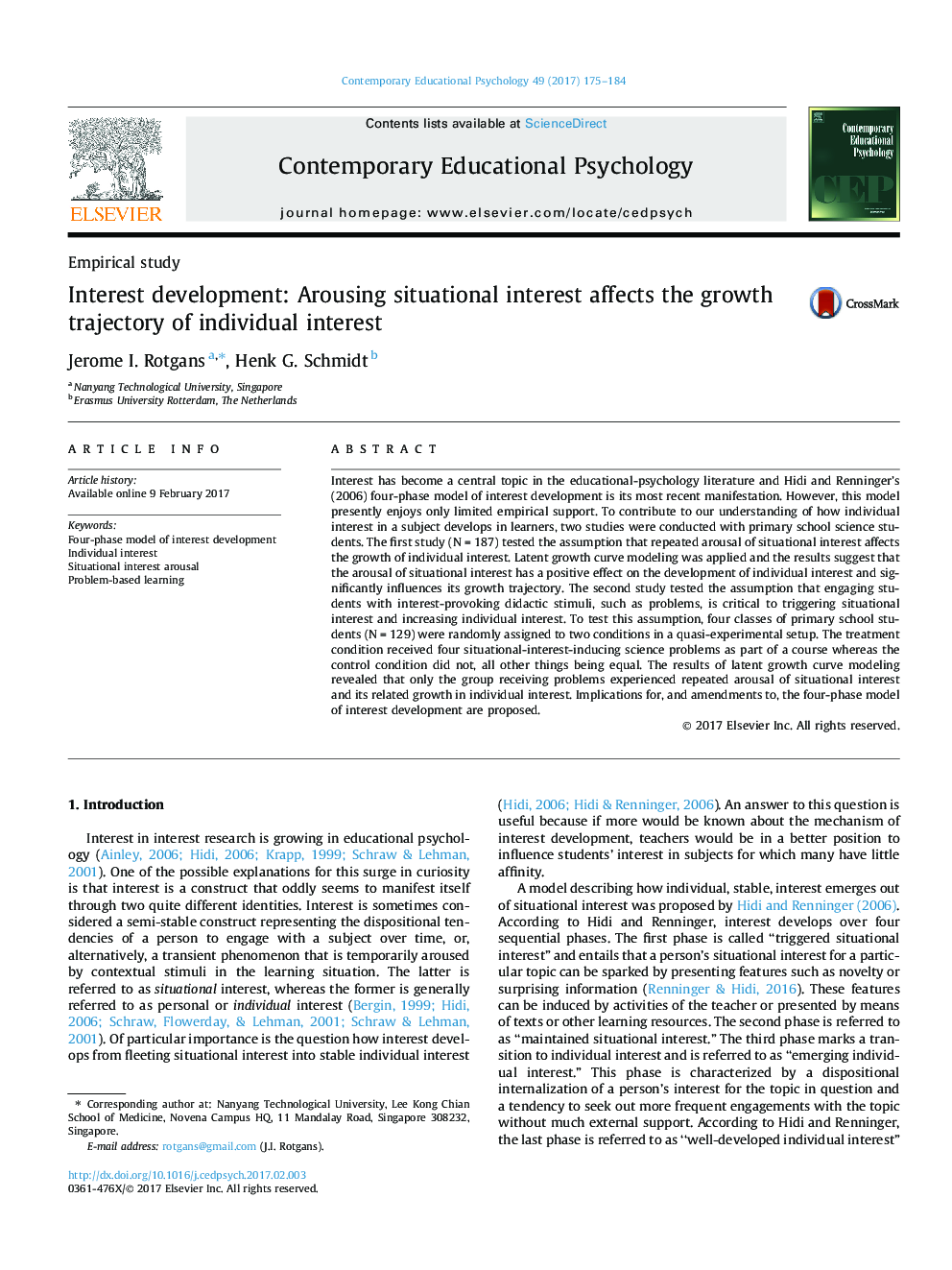| Article ID | Journal | Published Year | Pages | File Type |
|---|---|---|---|---|
| 4937900 | Contemporary Educational Psychology | 2017 | 10 Pages |
Abstract
Interest has become a central topic in the educational-psychology literature and Hidi and Renninger's (2006) four-phase model of interest development is its most recent manifestation. However, this model presently enjoys only limited empirical support. To contribute to our understanding of how individual interest in a subject develops in learners, two studies were conducted with primary school science students. The first study (NÂ =Â 187) tested the assumption that repeated arousal of situational interest affects the growth of individual interest. Latent growth curve modeling was applied and the results suggest that the arousal of situational interest has a positive effect on the development of individual interest and significantly influences its growth trajectory. The second study tested the assumption that engaging students with interest-provoking didactic stimuli, such as problems, is critical to triggering situational interest and increasing individual interest. To test this assumption, four classes of primary school students (NÂ =Â 129) were randomly assigned to two conditions in a quasi-experimental setup. The treatment condition received four situational-interest-inducing science problems as part of a course whereas the control condition did not, all other things being equal. The results of latent growth curve modeling revealed that only the group receiving problems experienced repeated arousal of situational interest and its related growth in individual interest. Implications for, and amendments to, the four-phase model of interest development are proposed.
Related Topics
Social Sciences and Humanities
Psychology
Applied Psychology
Authors
Jerome I. Rotgans, Henk G. Schmidt,
